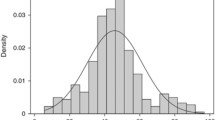Abstract
The present empirical work examines the differences ineconomic outcomes delivered by partisan governments, and theway in which voters take this into account. Autoregressivemodels of output growth, unemployment and inflation, augmentedwith political variables; and probit binary choice models ofvoting decisions, incorporating expectations about inflationand unemployment, are estimated for U.S. post-war data. Theanalysis confirms that partisan differences in economic outcomes are actually observed in the data. U.S. unemployment rate exhibits adistinct partisan cycle, behavior of output growth andinflation rate partly supports the partisan differenceshypothesis. Thus suggesting that each party can be``instrumental'' in solving particular economic problems. Inline with this logic, U.S. voters seem to believe in theasymmetric abilities of parties to fight inflation andunemployment. Most interesting empirical findings includeevidence that U.S. citizens tend to vote for the left party(Democrats) when high unemployment is expected, and for theright party (Republicans) when high inflation is expected.This relation is especially robust for Presidential elections.There is also evidence pointing to the presence of electoralinertia and absence of ``midterm'' electoral cycle in the U.S.
Similar content being viewed by others
References
Alesina, A. (1987). Macroeconomic policy in a two-party system as a repeated game. Quarterly Journal of Economics 102: 651–678.
Alesina, A. and Roubini, N. with Cohen, G.D. (1997). Political cycles and the macroeconomy.Cambridge, MA: The MIT Press.
Block, S. and Vaaler, P.M. (2001). The price of democracy: Sovereign risk ratings, bond spreads and political business cycles in developing countries. CID Working Paper 82, Harvard University.
Drazen, A. (2000). Political economy in macroeconomics.Princeton, N.J.: Princeton University Press.
Frey, B. and Schneider, F. (1978). An empirical study of politico-economic interaction. Review of Economics and Statistics 60: 174–183.
Gartner, M. (1994). Democracy, elections and macroeconomic policy: Two decades of progress. European Journal of Political Economy 10: 85–109.
Hall, R. (1988). Intertemporal substitution in consumption. The Journal of Political Economy 96: 339–357.
Hibbs, D.A. (1977). Political parties and macroeconomic policy. American Political Science Review 71: 1467–1487.
Hibbs, D.A. (1992). Partisan theory after fifteen years. European Journal of Political Economy 8: 361–373.
Nordhaus, W. (1975). The political business cycle. Review of Economic Studies 42: 169–190.
Nordhaus, W. (1989). Alternative approaches to the political business cycle. Papers on Economic Activity 2: 1–49. Brookings Institution.
Persson, T. and Tabellini, G. (2000). Political economics: Explaining economic policy.Cambridge, MA: The MIT Press.
Price, S. (1997). Political business cycles and macroeconomic credibility: A survey. Public Choice 92: 407–427.
Rogoff, K. (1990). Equilibrium political business cycles. American Economic Review 80: 21–36.
Rogoff, K. and Sibert, A. (1988). Elections and macroeconomic policy cycles. Review of Economic Studies 55: 1–16. 185
Author information
Authors and Affiliations
Rights and permissions
About this article
Cite this article
Verstyuk, S. Partisan Differences in Economic Outcomes and Corresponding Voting Behavior: Evidence from the U.S.. Public Choice 120, 169–189 (2004). https://doi.org/10.1023/B:PUCH.0000035862.22896.65
Issue Date:
DOI: https://doi.org/10.1023/B:PUCH.0000035862.22896.65




